Keresés: %s
Keresés: %s
Constitutional dialogue should replace politically motivated EU discourse
The only way forward for the rule of law is to replace the politically motivated EU discourse with an unbiased, intergovernmental constitutional dialogue, Justice Minister Judit Varga told MTI on Monday, arriving at a meeting of EU ministers responsible for EU affairs.
Judit Varga added that "unfortunately, nothing has changed in this area and double standards persist."
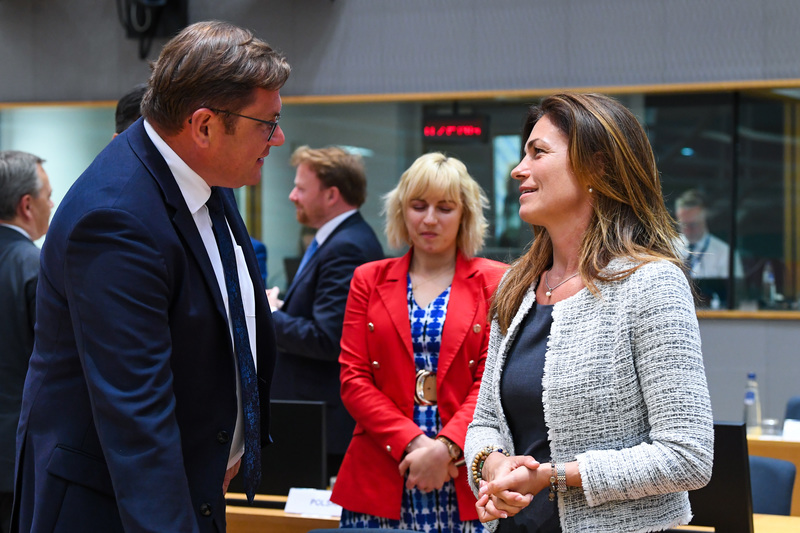
Presenting the agenda of the meeting, the Justice Minister said that as far as the long-term EU budget review is concerned, Member State leaders agreed in 2020 that this would not take place, but the European Commission is ignoring this and is already calling for more resources, while failing to explain why the money has run out.
She said that one of the new elements of the review package is a huge new grant to Ukraine of €50 billion in aid over four years, but it is unclear how much of that would be aid, how much would be loans.
She added that the commission is also asking for funds for additional administrative costs, while expecting Member States to cope with inflation caused by sanctions against Russia and the economic challenges of the energy crisis.
However, she said the most serious problem of principle is that the Commission would review the EU budget without many Member States, including Hungary, having received a penny from the recovery fund.
Judit Varga pointed out: Hungary was in solidarity several years ago and ratified the large common EU borrowing in the spirit of unity, from which "for all sorts of fabricated reasons, it has not received a single penny".
She stressed that this primary issue must first be clarified before any other EU decision making on any other issue is taken forward.
On the other hand, she added, such a decision cannot be taken that would commit EU countries for several years in relation to a large amount of funding, the details of which are not clear.
The Hungarian Prime Minister held talks with the President of Paraguay and the President of Ecuador
On the sidelines of the EU-Latin America summit in Brussels on 17-18 July, Viktor Orbán held talks with the President of Paraguay and the President of Ecuador.
The Prime Minister discussed the world political situation, the war in Ukraine and its consequences, and the role and opportunities of conservative politics with Paraguayan President Mario Abdo Benítez.
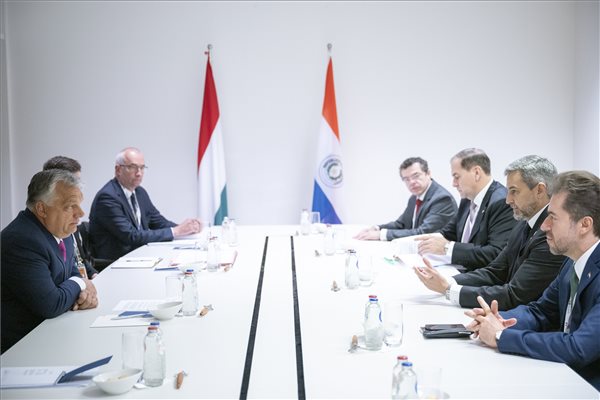
Mr Orbán said that Hungary, almost uniquely in Europe, stands on the foundations of fundamental values, and believes in the conserving force of family, nation and faith. The President of Paraguay said that the party governing his country was working on the basis of the same values and that it was equally important to defend them.
Viktor Orbán and Mario Abdo Benítez also discussed the possibilities of boosting economic and trade relations between Hungary and Paraguay.
The Hungarian Prime Minister also held talks with Ecuadorian President Guillermo Lasso.
The two leaders welcomed the excellent educational and scientific cooperation between the two countries.
During the meeting in Brussels, members of the Hungarian and Ecuadorian delegations signed a Memorandum of Understanding on the Stipendium Hungaricum scholarship programme. In view of the popularity of the programme in Ecuador, the Hungarian government has increased the annual quota from the original 50 to 75 students.
Viktor Orbán and Guillermo Lasso took stock of the possibilities for developing bilateral cooperation in the fields of water policy, trade relations and energy,
(Source: Hungarian News Agency)
There will be no progress in financing arms transfers while OTP is on the Ukrainian blacklist
The government is not willing to negotiate on the proposed €500 million to finance arms supplies to Ukraine, which has been blocked so far, or on the proposed €20 billion until Kiev removes OTP from the list of international sponsors of the war, Foreign Minister Péter Szijjártó warned in Brussels on Thursday.
According to a statement by the Foreign Ministry, the minister stressed during the break of the EU Foreign Affairs Council meeting that the atmosphere in Brussels is still one of war, and there was no talk of peace this time either. In fact, a proposal was put forward under which the bloc would spend 20 billion euros on arms supplies to Ukraine over the next four years, of which roughly 200 million euros would be the share Hungary.
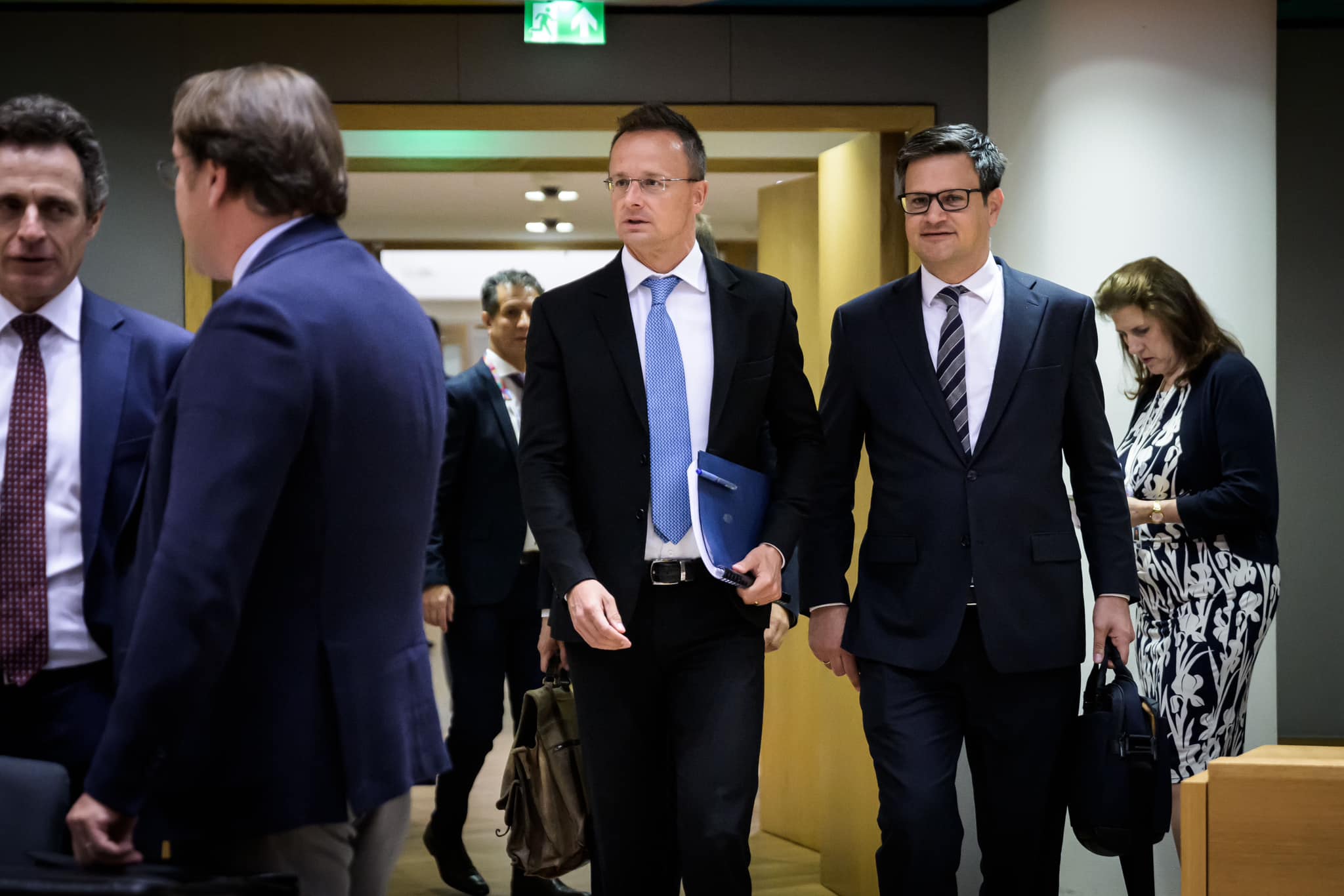
"What is the European Union saying? That it will be a state of war for another four years anyway. So now Brussels is not only not thinking about peace in the short term, but is also envisaging a war in Europe in the long term," he said.
"This proposal is shocking (...) Well, the question rightly arises as to how many people will die in the four years that we are financing arms shipments with €20 billion. And how many Hungarians will die in those four years?" he asked.
He underlined that the last five hundred days have proven that there is no solution to this conflict on the battlefield, and the more weapons are shipped, the higher the death toll will be. "We are therefore asking Brussels, Berlin, Paris and Washington to bring peace to our neighbours rather than weapons," he said.
Szijjártó recalled that so far €5.6 billion from the European Peace Facility had been used to finance arms supplies and that another €500 million was now to be approved, but the government would not contribute to this until Ukraine removed OTP, the largest Hungarian bank, from the list of international sponsors of the war.
"We are not prepared to negotiate on either the €500 million blocked so far or the €20 billion now being brought forward as long as OTP is on the list of international sponsors of the war," he said.
"Not to mention the fact that the European Commission recently admitted that it has run out of money and asked for another €50 billion to support Ukraine. Now they are asking for €20 billion for arms supplies, so we are talking about €70 billion, and there is no accounting, no statement of the money spent so far," he added.
In addition, he pointed out that last year the 100 largest Western-owned companies paid USD 3.5 billion in corporate taxes in Russia, while OTP, which has a 0.16% share of the Russian banking market, was blacklisted in Ukraine.
The minister also pointed out that some participants had criticised the Central European countries for imposing restrictions on imports of Ukrainian grain.
He stressed that the agreement was to allow grain to be shipped from Ukraine to Africa and the Middle East to prevent humanitarian crises, not to sell the crops in Central Europe.
"I rejected in the strongest possible terms any accusations that denounces Central Europeans that we were blocking any kind of shipments," he said, pointing out that Hungary had even made infrastructure investments to expand trans-shipment capacity.
"Hungary remains ready, together with the other Central European countries, to allow Ukrainian grain shipments to pass through its territory, but there is no question of selling them in Hungary and destroying our food market," he underlined.
In response to a journalist's question on the European Parliament's resolution on the abolition of the veto right of Member States, Szijjártó stressed that under the treaties, all parties must agree on decisions in strategic matters.
"And those who are calling us to account for European values, those who are calling us to account for the rule of law and respect for treaties, would now suddenly rewrite the treaties out of their own interests without any problems," he said.
He reacted in a similar way to the protests against next year's Hungarian EU presidency, saying that the rotating order of office was predetermined.
"And these rules say nothing about the need for the rotating presidency to agree with a percentage of the issues dictated by the big member states or every move of the liberal mainstream. That is what the European Union is about, we are diverse," he said.
Current agri market situation and the sustainability of agriculture were in the focus at the Agriculture and Fisheries Council in July
Ministers of agriculture exchanged views among others on current market situation, on the sustainable use of pesticides and on the New Genomic Techniques at their meeting in Brussels on 25 July.
The European Commission has adopted all aid packages to help farmers dealing with the various challenges. However, the situation on agricultural markets is still under pressure due to the extraordinary weather conditions, low purchase prices and the suspension of the Black Sea Grain Agreement. The Commission stressed that the role of the Solidarity Lanes is more important than ever. Minister István Nagy said it was important to improve the functioning of the Solidarity Lanes and to restore their original purpose. He added that Ukrainian agricultural products should return to their traditional export markets and reach the third countries in need.
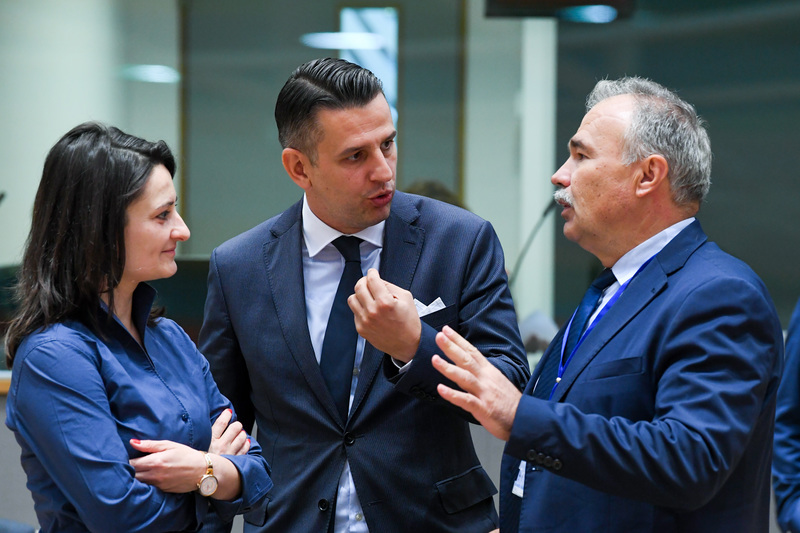
The European Commission has presented its additional impact assessment on the proposal for a Regulation on the Sustainable use of Pesticides. István Nagy stressed that a responsible decision on future measures can be only taken, when the quantitative data on the impact on yields, food prices and import volumes are known. He emphasized that such rules are needed, which contribute to environmental protection and climate goals without jeopardizing food security.
The European Commission presented its proposal for plants produced on new genomic techniques (NGT) and for food and feed derived from them. The ministers considered the techniques as a potential opportunity to achieve the goals set out in the European Green Agreement but most of them, like Minister István Nagy, warned to be cautious of their application.
We can reach a breakthrough in the Erasmus negotiations with the European Commission by the end of autumn
Our talks with Johannes Hahn, the European Commission's Budget Commissioner, were held in a good atmosphere, which gives rise to the hope that we may be able to achieve a breakthrough in the coming period and settle the outstanding issues in the Erasmus case by the end of autumn, said Tibor Navracsics, Minister of Regional Development, in a statement issued in Brussels together with János Bóka, Minister responsible for EU Affairs.
He said they had agreed with the commissioner that the negotiations should be speeded up and the remaining technical problems resolved in order to reach an agreement by the end of November and to ensure the smooth participation of Hungarian students in Erasmus scholarships.
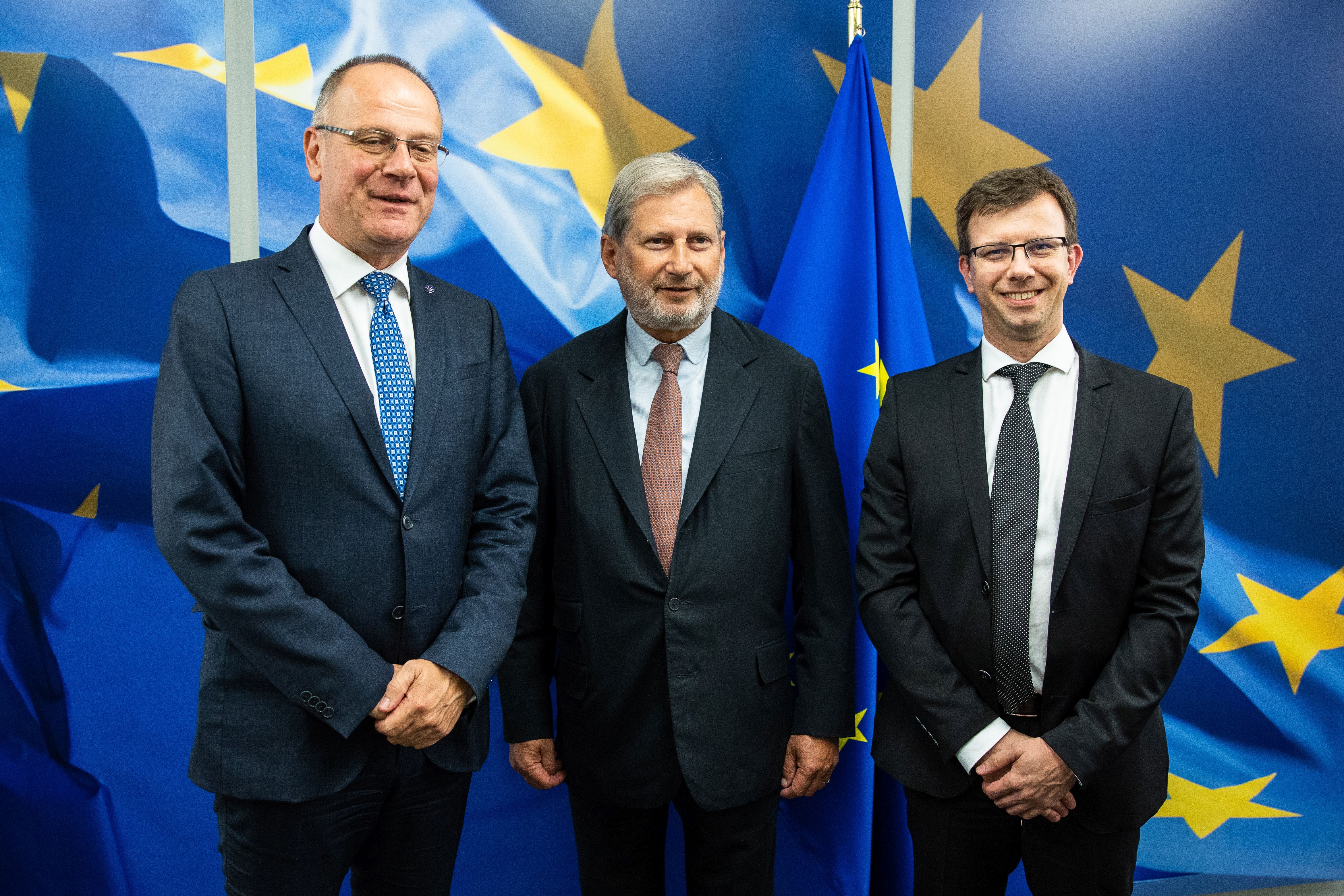
He added that Wednesday's negotiations showed that the European Commission is more flexible than before, even in areas where the positions of the Commission and the Hungarian government had previously differed. He said that these issues do not fundamentally concern the membership of university boards of trustees.
"The interpretation, where we were very far apart, was whether the legal instrument designed to protect EU funds could be used in a case where EU funds were not actually being used. In other words, should we introduce a general regulation at the request of the European Commission also in cases where EU funds are nowhere near and are not intended to be used, or should we create a system, in our view, taking into account the purpose of the original legal instrument, which would allow us to regulate the composition, perspicuity or transparency of legal entities that actually intend to use EU funds", said Tibor Navracsics.
János Bóka stressed that Wednesday's talks with the European Commission confirmed the Hungarian government's readiness to continue negotiations in a constructive and loyal spirit of cooperation, both at technical and political level. It was suggested that in further discussions, the political and technical levels should be properly delimited in order to make progress even faster.
On the so-called super-milestones to be met to access EU funds, he said the Hungarian government had met them adequately.
"The Commission itself will carry out a technical and political assessment and take a position on this. We can convincingly demonstrate that the Hungarian government has delivered what it committed to on time," added János Bóka.
(Source: Hungarian News Agency)
Unacceptable decision by Brussels on Ukrainian grain
The decision by Brussels not to extend the ban on imports of Ukrainian agricultural products into the five EU member states bordering Ukraine is outrageous, unacceptable and non-transparent, agriculture minister Istvan Nagy said in Brussels on Monday.
István Nagy, who was attending a meeting of agriculture ministers from EU member states, told a press conference for Hungarian state media that the European Commission's decision not to extend the temporary import ban was a serious problem, but the fact that Ursula von der Leyen, the president of the body, had not consulted the leaders of EU member states on the matter but Ukrainian President Volodymyr Zelensky raised separate political questions.
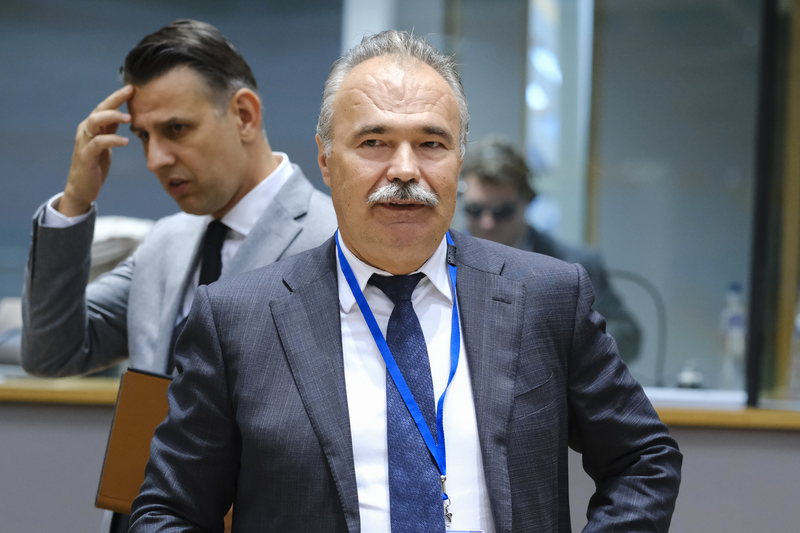
"EU leaders are elected by the Member States. They are accountable to them, they should be supporting them, but instead the interests of a completely outside third country are more important to them than those of the EU Member States," István Nagy pointed out.
According to the agriculture minister, the EU has given Ukraine the key for the solution to the problem of Ukrainian grain imports, namely by asking Kiev to commit itself to import controls, "which is ridiculous in itself".
He pointed out that the ban on imports of Ukrainian grain represents six billion euros for the five Member States. "Brussels does not want to understand this, which is why we need to take bold, tough and unilateral national measures. Because if we don't protect our borders, we will be flooded with Ukrainian grain before the harvest, and we won't know what to do with it," he stressed.
István Nagy stressed that the ban on grain imports must be reinstated, and if any country wanted to soften it or request an exception, it could do so. He added that the solution is to transport large quantities of cereals to third countries via solidarity corridors rather than to European markets.
"Support land transport to get the grain to seaports and then to its traditional market in Africa. We have also warned the Commission that if Ukrainian grain does not get there, it could be replaced by Russian grain," the agriculture minister recalled.
(Source: Hungarian News Agency)
The EU must bring peace to its neighbourhood
The European Union must create peace in its neighbourhood, it must be able to protect its external borders against illegal migration, and it must stop applying double standards to Poland and Hungary: this is the clear position of the Hungarian government, János Bóka, Minister for European Union Affairs, said in a statement to MTI in Brussels on Tuesday.
On his arrival at the meeting of EU ministers responsible for EU affairs, János Bóka said that during the informal breakfast meeting he presented the Hungarian position on the rights and situation of the Hungarian minority in Transcarpathia.
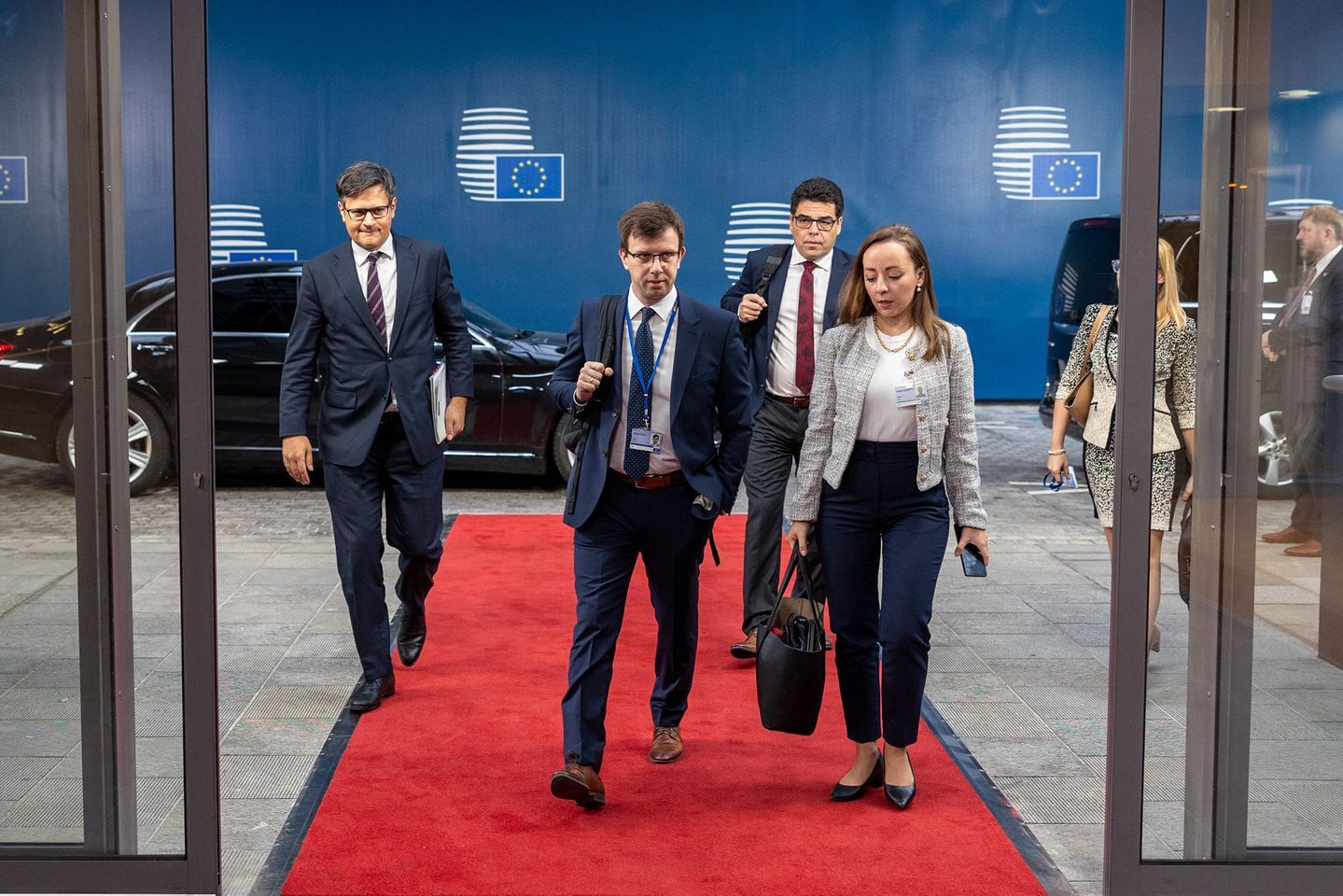
"The Hungarian government would like to see a solution that regulates not only education, but also issues covered by the language and minority law in accordance with the recommendations of the Venice Commission, in line with the pre-2015 situation," he said.
He said that the recent visit of President of the Republic Katalin Novák to Ukraine gave a new impetus to the discussions on the situation of the Hungarian minority in Transcarpathia. In her opinion, it is important that this momentum is matched by real political will and that its results are tangible.
János Bóka also said that since Monday he had been holding talks with the European Commission's chief officials on the preparation for the Hungarian EU Presidency.
(Source: Hungarian News Agency)
The meeting of the Competitiveness Council on September 25, 2023: The Council adopted its position on the much-discussed Euro 7 regulation
After a lively debate at the meeting of the Competitiveness Council on September 25, the ministers accepted the Council's position regarding the new Euro 7 emission standard for motor vehicles. The final text was supported by the vast majority of member states. The Council - thanks to the active contribution of Hungary in the coalition of 8 like-minded states, proposed a number of pragmatic changes compared to the Commission's proposal, while keeping in mind the environmental and health objectives as well.
"Hungary supports the climate goals, but it is important that the measures leading to them are effective, realistic, accessible and proportionate," emphasized State Secretary Gergely Fábián. Taking into account the domestic economic strategic interests, Hungary supported the position of the Council, since the current general approach shows significant results in terms of the most essential elements.
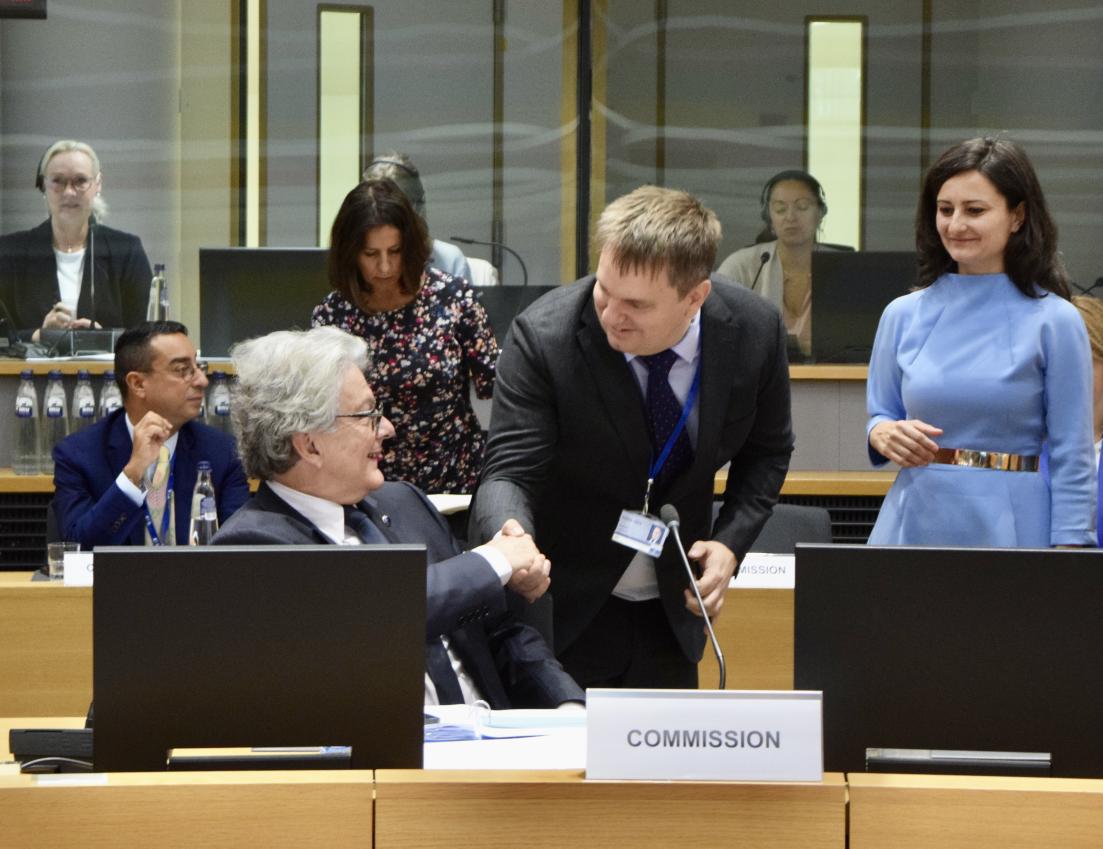
During the negotiations, the date of application of the regulation was a pivotal element. The adopted Council text further delays the timetable for legislation on Euro 7 emissions standards for cars and vans. The new rules should be applied to cars and vans 30 months after the legislation comes into force.
The Commission originally proposed that the Euro 7 standards come into force from 2025 for cars and vans, and from 2027 for trucks. The Council's general approach rejects the Commission's proposal for extended testing requirements and restores car exhaust emission limits to the previous Euro 6 standards.
The regulation introducing the vehicle's on-board emission monitoring system (OBM), which according to many is not yet suitable for introduction, remains a highly disputed element. What has not changed from the original Commission proposal is the introduction of limits on brake and tire particulate pollution and battery durability requirements for electric vehicles not covered by Euro 6.
Another minority group of member states objected to the dilution of the Commission's original proposal, arguing for the protection of air quality, calling the result a missed opportunity, and not supporting the Council's position.
The general approach provides the Council presidency with a mandate for negotiations with the European Parliament, which will start as soon as the Parliament adopts its position.
„The compromise adopted is very delicate for us, we have a firm position regarding certain elements of it, which we maintain during the negotiations with the Parliament”- emphasized the state secretary.
The Council adopted the general approach on the two proposals of the EU design protection package with much greater consensus, as delegations unanimously supported the drafts. The modernisation of the legal framework will make it easier to obtain design protection both in the member states and at EU level.
High-Level Conference on a Comprehensive Approach to Mental Health
A hybrid conference titled "Az EU comprehensive approach that prioritises sound mental health for all" was held on the occasion of World Mental Health Day.
The event was hosted by Health Commissioner Stella Kyriakides and attended by Judit Bidló, Deputy State Secretary for Health Professional Management, who met, among others, Queen Matild of Belgium, Commissioner Stella Kyriakides, Lydia Abela, wife of Maltese Prime Minister Robert Abela, and Marc Angel, Vice-President of the European Parliament.
The conference provided a prominent opportunity to discuss issues of mental health and facilitated the sharing of best practices among EU institutions, national governments, international organizations, and stakeholders.
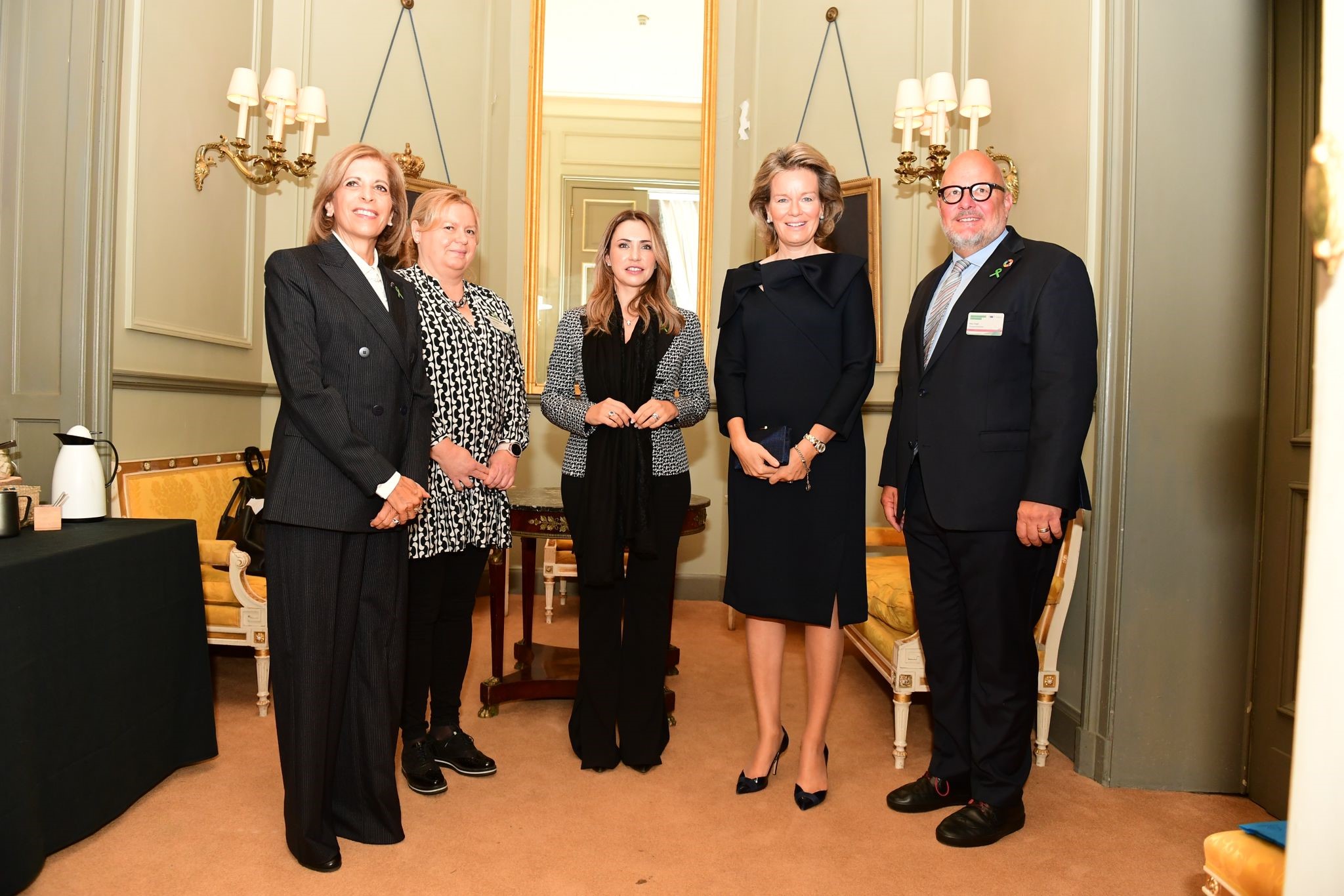
In her speech, Judit Bidló highlighted the challenges related to mental health in Hungary as well as the government strategies and actions related to the implementation of the National Mental Health Programme. She underlined Hungary's commitment to the EU Mental Health Strategy and presented initiatives to strengthen the mental wellbeing of families and the network of health development offices. The Deputy Secretary of State also emphasized future strategies and international cooperation, including the Spanish-Belgian-Hungarian Trio Presidency, which has an increased focus on mental health initiatives and strategies.
The conference is an important step in promoting and prioritising mental health in the European Union.
The EPSCO Council has been convened again
The Hungarian delegation was represented by Attila Fülöp, State Secretary for Social Policy, at the Employment, Social Affairs, Health and Consumer Affairs (EPSCO) Council meeting on 9 October 2023.
With Hungary's abstention and declaration, the Council adopted a Council Recommendation on developing framework conditions for the social economy, and it adopted further Council conclusions on mental health and precarious work, social protection for the self-employed, and housing for Roma. In the context of the Semester, the Council approved reports from the Employment Committee (EMCO) and the Social Protection Committee (SPC) and had political debates on the impact of new technologies on labour and the strengthening of European social protection systems.
The meeting was chaired alternately by Yolanda Diaz, Minister for Work and the Social Economy, Ione Belarra, Minister for Social Rights and Agenda 2030, and José Luis Escrivá, Minister for Inclusion, Social Security and Migration.
The European Commission was represented by Nicolas Schmit, Commissioner forCommissioner for Jobs and Social Rights, and Helena Dalli, Commissioner for Equality.
Environment Council in Luxembourg
The meeting of the environment ministers took place on October 16, 2023 in Luxembourg. At the Council meeting, Hungary was represented by dr. Anikó Raisz, State Secretary for Environmental Protection and Circular Economy.
As the result of negotiations that lasted into the evening, the Environment Council adopted the updated Nationally Determined Contributions (NDC), in which the European Union summarizes its climate policy measures in order to submit it to the Secretariat of the UN Climate Change Conference. The document serves as the commitment made by the European Union under the Paris Agreement. The Council also adopted the conclusions on the 28th session of the Conference of the Parties of the UN Framework Convention on Climate Change which lays down the framework of the EU's position to be represented at the conference . Member States were divided on issues, related to the 2030 emission reduction and energy targets. In the end, the Spanish Presidency managed to present a compromise text that addressed the concerns of all member states.
The ministers of environmental protection managed to agree on the common position of the Council regarding the proposals on urban wastewater treatment and CO2 emission standards for heavy-duty vehicles (CO2 HDV), which will serve as the position of the Council during the trialogue negotiations with the European Parliament.
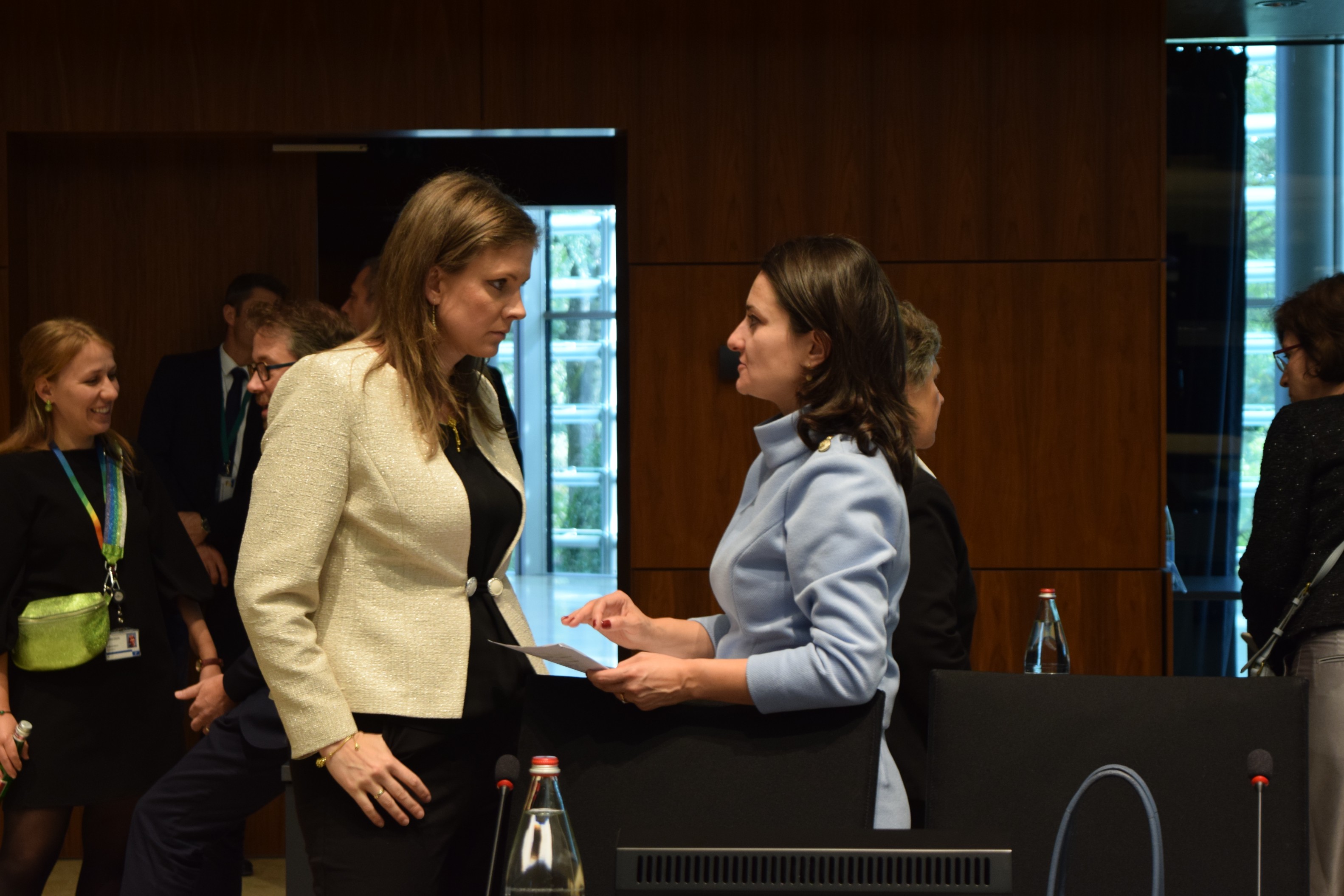
The proposal on Urban Wastewater Treatment extends the scope of the current directive to smaller agglomerations, expands the range of pollutants within the scope and aims to achieve climate neutrality in the wastewater treatment sector, thus protecting the environment and human health even more effectively. Hungary struggles with the implementation of the current directive which entails that an infringement procedure is going on against our country. Given the costs of the implementation of the more stringent provisions and the lack of available resources, Hungary could not support the Council's common position.
The CO2 HDV proposal strengthens the existing CO2 emission standards for heavy-duty vehicles in order to contribute to the achievement of the climate policy goals set out in the EU Climate Regulation from 2030 onwards. Within its context, the ministers also agreed that instead of the 2030 deadline originally proposed by the Commission, all new urban buses should be emission-free by 2035. Through this, Member States, including Hungary, could provide basis for a more realistic timeline to so that smaller towns could more easily fulfil the requirements for the transition. The compromise, on the other hand lays down that the European Commission in the 2027 review has to take into account the impacts on extra-EU trade, which for Hungary, being an EU-border Member State is a crucial aspect.
EU proposals that could jeopardise overhead cost reduction measures cannot be supported
The energy council on 17th of October reached an agreement on the electricity market design proposal.
Attila Steiner State Secretary Head of the Hungarian delegation emphasised that even though the general approach included several positive elements to incentivise investments in low carbon technologies which are crucial for the energy transition and acknowledges the role of nuclear energy as a necessary clean energy source for the secure and sustainable decarbonisation of the economy Hungary could not support the proposal, as it does not provide enough flexibility for the Member State to apply price regulation below cost if that is necessary to prevent excessive energy prices for the protection of household consumers in case of energy crisis.

The council also received an update from Herman Halushchenko, minister of energy of Ukraine on the current state of Ukraine’s energy system and discussed the preparedness level of the Union for the 2023/2024 winter season. Estonia and Finland gave a brief summary of the investigation into the drop of pressure and leaks detected on the Baltic pipe.
Development policy
Katalin FREIER
Development Cooperation (CODEV), RELEX / Horizontal Questions (Global Gateway)
Greater illegal migration means greater terrorist threat
Hungary and several Central European countries clearly dare to say what some Western European countries have not yet told: greater illegal migration means a greater terrorist threat to Europe, said Bence Rétvári, Deputy Minister of Interior, to Hungarian journalists in Luxembourg on Thursday.
Bence Rétvári participated in the meeting of the interior ministers of the EU Member States. During the break in the forum, he stressed that no meaningful step had been taken to protect the external borders. The European Union is only simplifying the work of human smugglers by automating the admission of migrants through quotas and migration pacts, which could also increase the threat of terrorism in Europe.
Only one thing seems to work: the protection of external borders and the process of asylum applications outside the territory of the European Union. "There is no other solution. There is no other way," underlined the State Secretary.
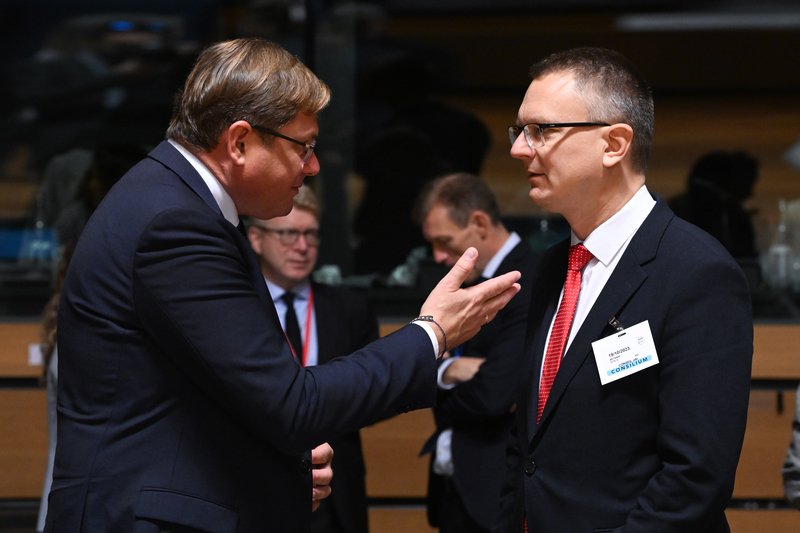
Bence Rétvári warned that the Israeli-Palestinian conflict will further increase illegal migratory pressures and threats in Europe. A wave of refugees is also exploited by those who come with wrong intentions, thus those who arrive to commit terrorist acts will also find it easier to enter Europe, he said.
Regarding the agenda item of the meeting dealing with the situation in the Schengen area, Bence Rétvári stated that the system of the area without internal border control, which is a fundamental value of the European Union, has been challenged by migration and terrorism. "The Schengen area and the interoperability of the EU's internal borders have never been in such a bad shape," he said.
He believes this the responsibility of the leaders of the European Union. He said that a series of wrong decisions in Brussels led to this and the failure to protect the external borders. As migration has not been stopped, terrorism is now on the rise, he said.
He reminded that Hungary has been emphasising since 2015 that the external borders must be protected. Hungary also protects the external border of the union so that the internal borders do not have to be re-established. The reappearance of internal borders means not only discomfort, not only a political setback and failure but also an economic disadvantage since the common internal market will be weakened and economic power will decrease in Europe - he warned.
Bence Rétvári said that Hungary's position remains that only external border protection can stop illegal migration. Hungary, therefore, continues to claim the €2 billion it has spent so far on protecting its external borders. The State Secretary also stressed that Hungary continues to oppose the adoption of the new EU migration pact and calls on the EU and the Member States to reconsider their position before it is too late.
"We consider the migration pact to be dangerous since if someone were to come to Europe to commit a terrorist act, the regulation would mean a wide open door for them as well. Let's not continue on the path of quotas but move toward protecting the external borders and thus protecting the European Union too" - added Bence Rétvári.
Source: MTI - Hungarian News Agency.
Brussels is powerless to protect European farmers
Brussels has proved powerless to restrict the inflow of Ukrainian agricultural products into the EU and to protect European farmers, State Secretary for Agriculture and Rural Development of the Ministry of Agriculture said in Luxembourg on Monday.
Speaking to Hungarian journalists after the meeting of the agriculture ministers of the European Union Member States, Zsolt Feldman stressed that countries facing difficulties with the inflow of Ukrainian agricultural products and food repeatedly called on the European Commission to take measures to direct Ukrainian products to their original destinations in Africa and the Middle East.
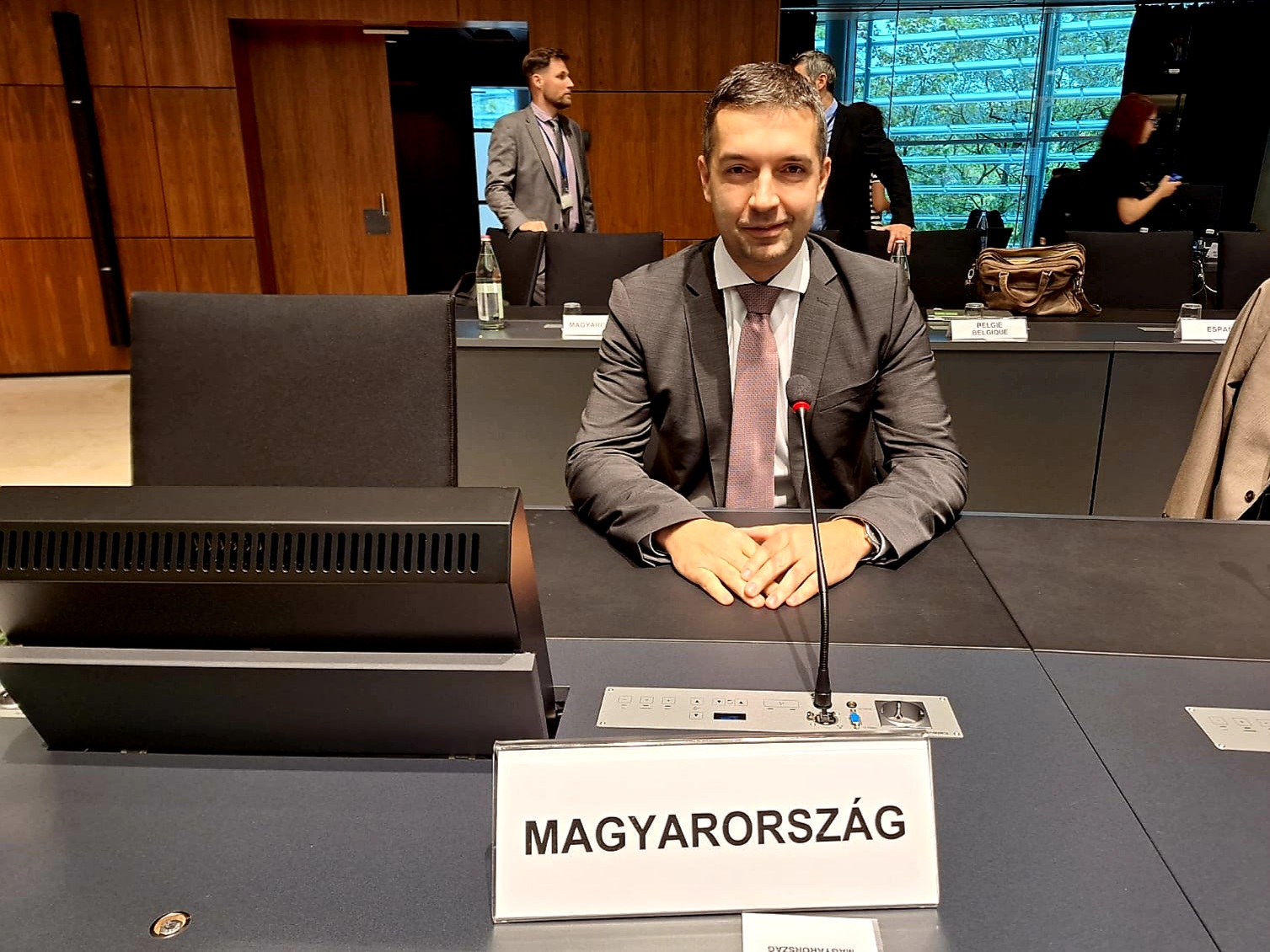
He stated that the solidarity lanes established for the transport of Ukrainian agricultural products are not fulfilling their role. It is no coincidence that Hungary was forced to maintain the national import ban at its discretion, through which at least Hungarian farmers can be protected.
He emphasized that when it comes to rail and road transport routes, the most essential for Hungary would be to take measures preventing Ukrainian agricultural goods from being blocked on its territory and allow them to reach ports in the Adriatic or the North Sea, and then their original destinations. To this end, Hungary has already proposed the introduction of a transit fee subsidy and has asked for infrastructure improvements together with several other Member States, he recalled.
The State Secretary underlined that a new chapter has opened in the field of efforts that have been ongoing for almost a year since, for the first time, a Member State not neighbouring Ukraine, Austria, proposed the limitation of the inflow of Ukrainian agricultural products and food by using protective measures, and the introduction of a transit fee to protect the stability of the internal market. He pointed out: the Austrian comment draws attention to the extreme market disruption caused by the appearance of Ukrainian agricultural products and their destabilizing effect on the European market. If the situation is not dealt with, the expected domino effect will reach more and more European farmers and more and more other European Member State - he added.
He said that a new alliance could be formed with Austria, underlining the current situation as "particularly unfortunate" for the European agricultural structure as well as small and medium-sized farms.
We have been waiting for constructive proposals and European solutions for a long time. Still, Brussels has proved powerless to restrict the flow of Ukrainian agricultural products into the EU and protect European farmers. We urge EU action, but we also help our own farmers with our means," added Zsolt Feldman.
Source:MTI - Hungarian News Agency
Israel conflict shall not escalate into an interstate war
The international community must do everything to prevent the conflict in the Middle East from escalating into an interstate war, Foreign Minister Péter Szijjárto said in Luxembourg on Monday.
Member States of the European Union are sharply divided on the crisis in Israel, Szijjártó said after a meeting of the Foreign Affairs Council, according to a ministry statement. The Hungarian government's position on the matter, he said, was clear: taking hostages and causing the death and suffering of thousands by firing thousands of missiles at a country was "unacceptable and inexplicable".

"So we consider it self-evident that Israel does indeed have a right to defend itself," Szijjártó said. "The European Union must stand by Israel as firmly as possible, since it is a victim of a terrorist attack."
"At the same time, we also think that the international community should make efforts to avoid escalation," the minister said. "If an escalation can't be avoided, a broadening of the Middle East conflict could create a situation that could poison the life of the Middle East and the wider region for many years and possibly decades."
The most important goal, Szijjártó said, was to prevent the conflict from escalating into a formal interstate war. "We hope all members of the international community will act responsibly," he added.Concerning the safety of civilians, Szijjártó said the ministry is in contact with all 15 Hungarian nationals still stranded in Gaza, from where it is currently impossible to leave. "We are, of course, working to make sure they can leave the Gaza Strip as soon as it is physically, politically and legally possible," he said.
Szijjártó also underlined the importance of making sure that the conflict does not weaken the stability of other countries in the region, particularly those such as Egypt, which is actually helping Europe in halting migration."If Egypt were not acting responsibly, if it weren't keeping illegal migration at bay, Europe would be faced by a migration wave from the south-east, which would pose an almost insurmountable security challenge," he said.
Meanwhile, Szijjártó assured Olivér Várhelyi, EU Commissioner for Neighbourhood and Enlargement, of his support in connection with "attacks" levelled against him. "We believe it is totally normal and expected in this situation to monitor the transfer of all forms of EU funding if there's a chance that it could end up in the hands of terrorist organisations," he said.The minister also expressed concern over the "alarming" images seen on the streets of certain Western European cities.
"Modern-day anti-Semitism that has emerged in Western European countries is a cause for serious concern, as is the fact that demonstrations in support of terrorist organisations are permitted in various Western European cities," Szijjártó said. "This is unimaginable on Hungary's territory," he said. "It is not permitted to organise demonstrations in support of terrorist organisations in Hungary."
"We regret that western European countries think differently about this, and we regret that modern day anti-Semitism has reared its head in Western Europe," Szijjártó said, adding that this was an "obvious consequence" of the absence of joint European action against migration. The minister underlined that as long as illegal migration was "encouraged" from Brussels, Western Europe could expect the continued formation of parallel societies as well as a rise in anti-Semitism.
Source: MTI- Hungarian News Agency
The most important for Hungary is to make peace
Hungary regards peacemaking as a top priority and a key plank of its security, the justice minister said in Luxembourg on Friday.
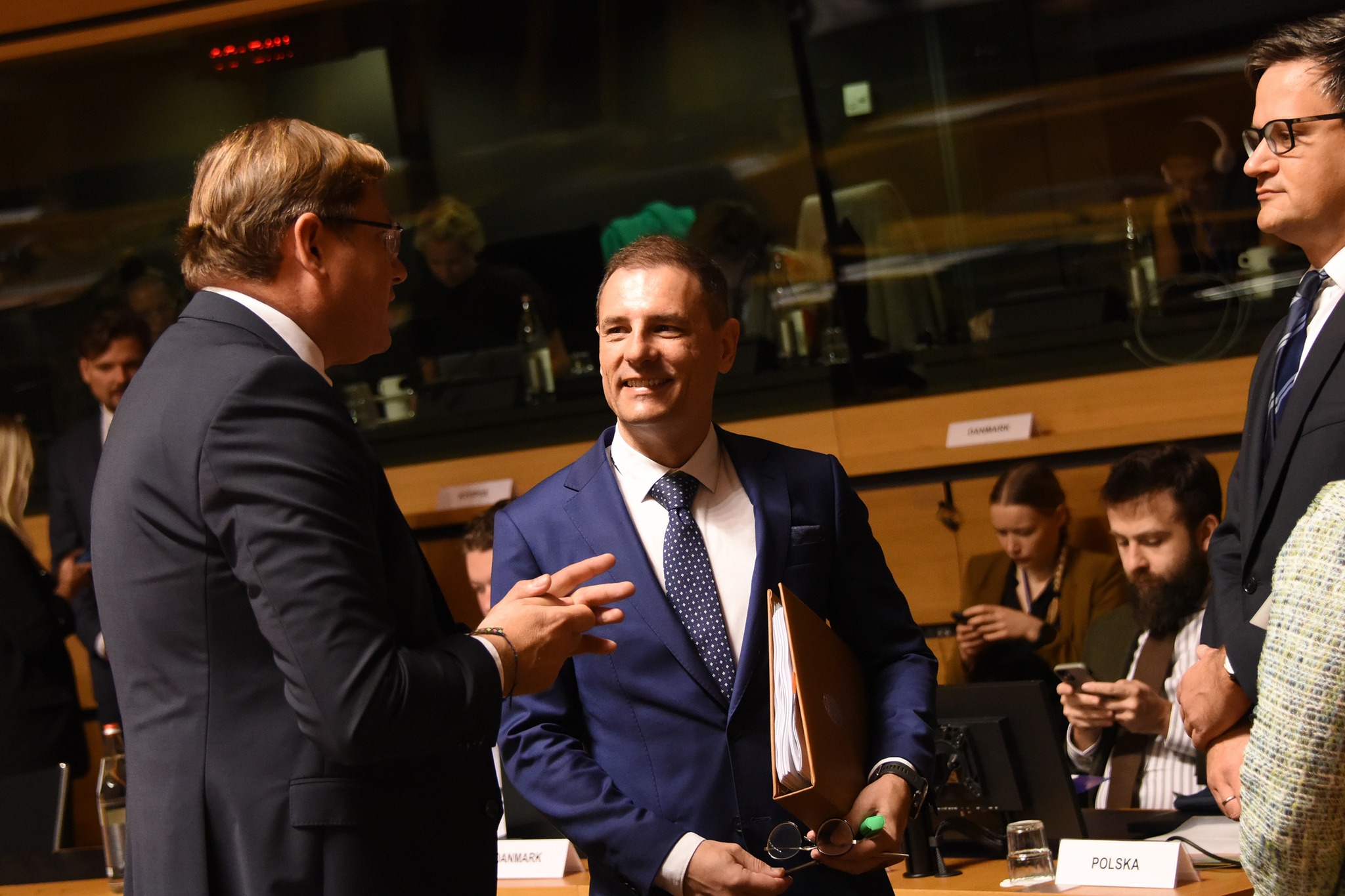
Bence Tuzson told Hungarian journalists on the sidelines of a meeting of European Union justice ministers that Hungary stood by everyone hit by the latest flare-up of terrorism. "Hungary considers it extremely important to fight terrorism in all areas, including terrorism that has flared up in Europe," he said.
Answering a question on Hungary's judicial reform, the minister said that "Hungary has successfully concluded relevant talks and closed the issue." The Hungarian government had taken all necessary measures regarding the judicial reform and answered all questions of the European Commission, he said, adding that the obstacles preventing community funding from being paid out to Hungary had been removed.
Similarly, he said the Hungarian government had "done what it had been requested" regarding the state of the rule of law in the country. "The ball is in the Commission’s court. it is now the body in Brussels that needs to fulfill its obligations," he said. He added however that "Hungary will only meet requests that do not go against the Hungarian people".
Concerning priorities for the Hungarian EU presidency in the second half of next year, the minister reminded that the most important is to protect the legal competitiveness of Europe. „Our priority is to make Europe legally competitive, both at national and EU level. We want therefore to strive for stengthening the legal instruments of the EU’s competitiveness during the Hungarian Presidency – the minister added.
Source: MTI - Hungarian News Agency
